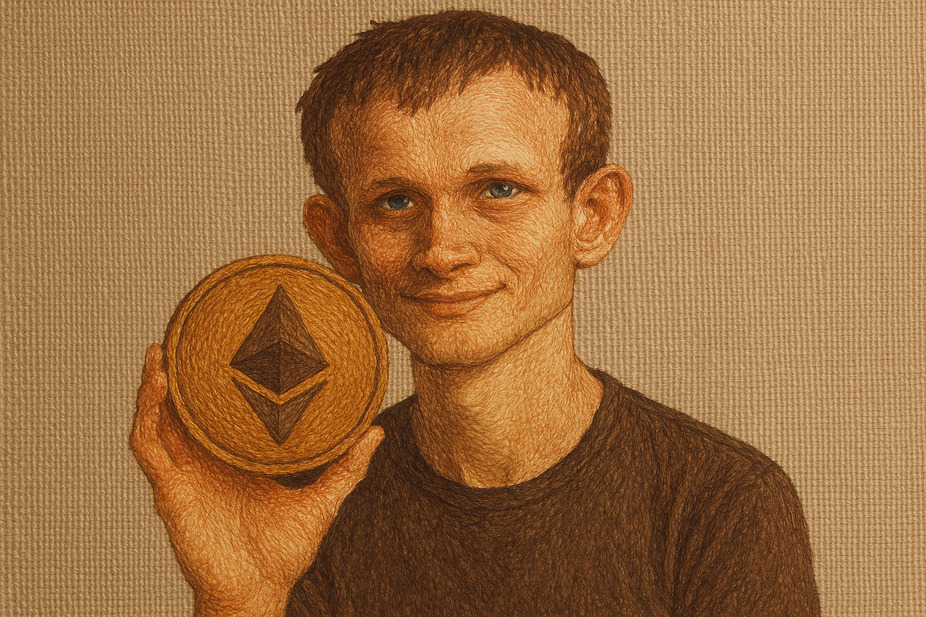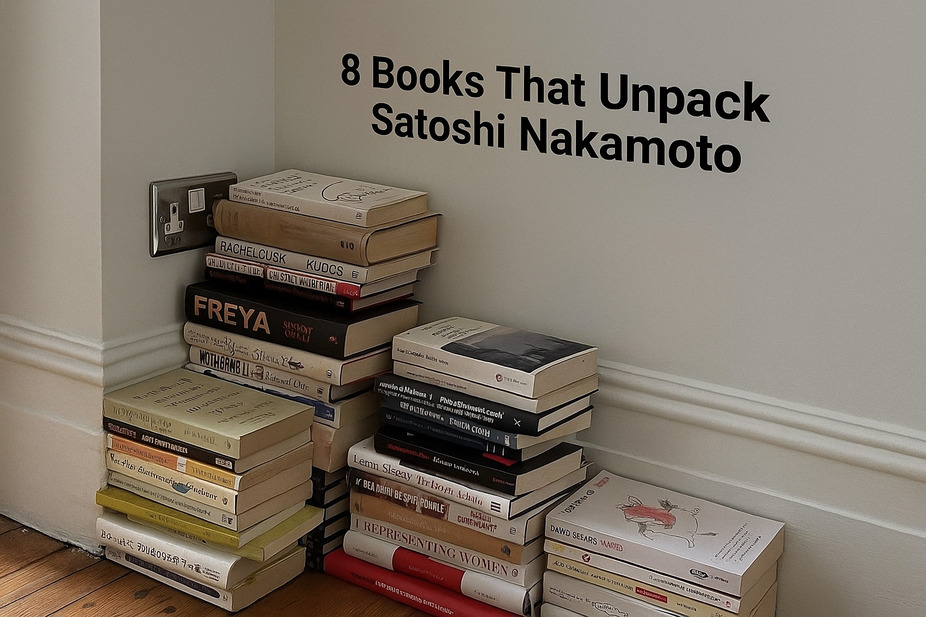Vitalik Buterin: the visionary who built Ethereum and sparked a digital revolution

You’ve probably heard of Ethereum, the massive blockchain platform that powers so much of today’s decentralized world, from digital art (NFTs) to futuristic finance (DeFi). Well, the architect of this incredible innovation is a soft-spoken, intensely brilliant individual named Vitalik Buterin. His journey, from a curious teenager to a global tech icon, is truly something to behold.
Buterin’s big idea was to take blockchain technology beyond just digital money, like Bitcoin. He imagined a “world computer” where complex, self-executing agreements – what we now call smart contracts – could live. This wasn’t just a technical leap; it was a conceptual one that unleashed a flood of new possibilities for decentralized applications (or “dapps”) across pretty much every industry you can think of.
He’s not just a coder, though. . Vitalik is really focused on tackling some of the major issues that come with his creation. He’s been at the forefront of the massive shift to Ethereum 2.0, moving the network to a more energy-efficient and scalable “Proof of Stake” system. Beyond the tech, he champions the ideals of decentralization, open-source collaboration, and believes blockchain can actually make the world a better place, backing it up with significant philanthropic efforts, including huge donations for causes like COVID-19 relief and scientific research.
A prodigy’s early path
Vitalik was born in Kolomna, Russia, in 1994, and moved to Canada with his family when he was just six. Even as a child, his mind worked differently – he was a whiz at math and programming, often far ahead of his classmates. It was his father, Dmitry, who first introduced him to Bitcoin when Vitalik was 17.
That spark quickly turned into a fascination. He didn’t just see Bitcoin as digital money; he saw the profound potential of its underlying blockchain technology to revolutionize everything, far beyond just financial transactions. This early curiosity set him on an extraordinary path.
From Bitcoin magazine to a new vision
While studying computer science at the University of Waterloo, Vitalik’s passion for crypto only grew. In 2011, he co-founded Bitcoin Magazine, one of the very first publications to cover the burgeoning world of digital currencies. Through his writing and editing, he quickly became a respected voice, demonstrating a deep understanding of the tech and its future. This period was crucial, connecting him with other thinkers and revealing the limitations of existing blockchain platforms, including Bitcoin itself.
He recognized Bitcoin’s revolutionary nature but also its narrow focus. It was primarily built for financial transactions, and its programming language wasn’t flexible enough for the broader applications Vitalik envisioned. He dreamed of a blockchain that could be more than just a currency – a foundational layer for a whole new internet.
The birth of Ethereum
By late 2013, Vitalik began sketching out his idea for Ethereum. He envisioned a platform with a “Turing-complete” programming language, meaning it could essentially run any kind of program or logic. This would allow developers to create those “smart contracts” – self-executing agreements with rules embedded directly into the code – which could then power a vast ecosystem of dapps.
In November 2013, he released the Ethereum white paper, laying out his audacious vision. The response was electric, drawing in developers, investors, and entrepreneurs who saw the immense potential. In early 2014, with a group of co-founders including Gavin Wood, Joseph Lubin, Anthony Di Iorio, and Charles Hoskinson, they launched a crowdfunding campaign. It was a massive success, raising over 31,000 Bitcoin (worth around $18 million at the time).
Vitalik, as chief scientist, led the development, and after relentless work, the first version of the Ethereum blockchain, dubbed “Frontier,” went live on July 30, 2015.
What made Ethereum a game-changer?
Ethereum’s brilliance lay in two core innovations:
- Smart contracts and dapps: These self-executing contracts eliminated the need for intermediaries, revolutionizing agreements. They paved the way for dapps that could operate autonomously, from managing supply chains to creating entirely new financial systems.
- DeFi and NFTs: Ethereum became the bedrock for two of crypto’s biggest trends. DeFi, or decentralized finance, allowed people to lend, borrow, and trade assets without traditional banks, with its total value once topping $100 billion. And NFTs – those unique digital assets representing ownership of art, music, or virtual land – exploded onto the scene, largely built on Ethereum’s ERC-721 and ERC-1155 standards, bringing blockchain into the mainstream creative world.
Evolving with Ethereum 2.0 (the merge)
As Ethereum’s popularity soared, so did its challenges, particularly with scalability and energy consumption. Its original “Proof of Work” system, like Bitcoin’s, was very energy-intensive. To tackle this, Vitalik spearheaded a monumental upgrade. In a landmark event known as “The Merge,” Ethereum transitioned to “Proof of Stake” (PoS).
This shift made Ethereum dramatically more energy-efficient and scalable, relying on validators who “stake” their Ether (ETH) to secure the network, rather than solving complex puzzles. This, combined with technologies like “shard chains” and the “Beacon Chain,” dramatically improved its ability to handle transactions. Ethereum continues to evolve, with further upgrades like Dencun and Pectra following The Merge.
Beyond the code: Vitalik’s broader influence
Vitalik’s impact isn’t confined to technical achievements. He’s a powerful voice for:
- Decentralization and open-source: He passionately believes in empowering individuals through decentralized networks, reducing the grip of central authorities, and fostering open, collaborative innovation. Ethereum’s development model itself is a testament to this, with changes openly debated by the community.
- Thought leadership: As a sought-after speaker globally, he has a unique gift for explaining complex blockchain concepts simply, inspiring countless developers and entrepreneurs with his vision of a decentralized internet (often called Web3) where individuals control their own data and interactions.
- Philanthropy: Vitalik has walked the talk when it comes to using wealth for good. In 2021, he famously donated over $1 billion worth of crypto to India’s COVID-Crypto Relief Fund and has also supported scientific research into life extension and regenerative medicine.
His net worth: a rollercoaster ride
Vitalik Buterin’s wealth is largely tied to his Ethereum holdings, making him one of the largest individual owners of ETH. While his net worth has fluctuated wildly with the crypto market’s ups and downs – peaking at over $2 billion in late 2021 before dropping significantly in the 2022 bear market, and then rebounding – it currently stands at an estimated $1.025 billion. This reflects both the volatile nature of crypto and his enduring impact as a co-founder.
The future according to Vitalik and Ethereum
Vitalik remains deeply involved in Ethereum’s ongoing development, constantly pushing for improvements and new functionalities. His vision for Ethereum extends far beyond its current uses; he sees it as the foundation for a truly decentralized internet, where individuals have unprecedented control over their digital lives.
He’s also keen to explore how blockchain can tackle pressing global issues like climate change, poverty, and political corruption. As a thought leader and innovator, Vitalik Buterin is undoubtedly set to continue shaping not just the future of technology and finance, but society as a whole.
His journey from a gifted young enthusiast to the co-founder of a platform that has fundamentally changed the digital landscape is truly remarkable. Through Ethereum, he’s not just revolutionized cryptocurrency but has laid the groundwork for a decentralized future, inspiring a new era of digital possibilities.
A note on due diligence: The information shared here is purely for educational purposes. It should not be taken as legal, tax, investment, financial, or cybersecurity advice. This isn’t a solicitation to buy or sell any crypto assets. Returns in the crypto market are subject to significant risk, including the potential to lose all or a substantial amount of your investment, and may be subject to taxes. Always conduct your own thorough research and due diligence before making any investment decisions. Past performance is never a guarantee of future results.












